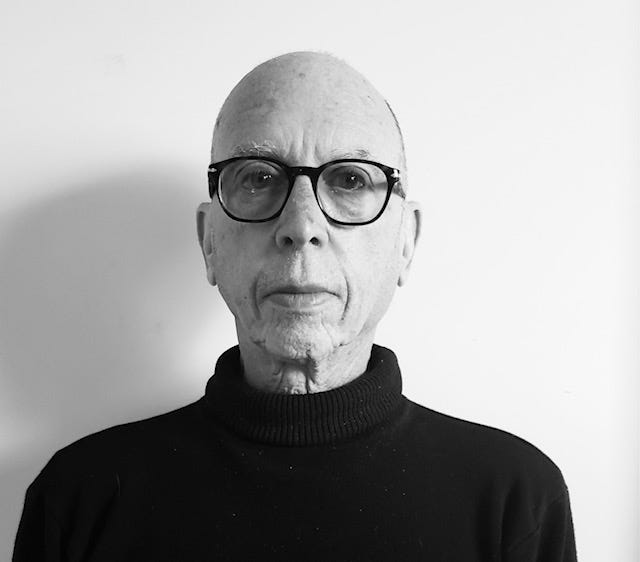TSLR Chats: Poetry Editor Arthur Solway
Get to know the many talented people behind each issue of the magazine
Welcome to our second installment of TSLR Chats. This regular feature gives you a glimpse into the lives and work of the dedicated editors behind the scenes at TSLR.
In this edition, Editorial Assistant Maya Peak sits down with Poetry Editor Arthur Solway to talk about his editorial vision, his poetry, and his time as founding director of a contemporary art gallery in pre-pandemic Shanghai.
Maya Peak: Could you introduce yourself?
Arthur Solway: I was born in Ohio, attended boarding school in Vermont—an alternative school where most of the faculty were former Peace Corp workers. It was there that I was introduced to works by William Blake, Franz Kafka, Walt Whitman, and many other significant writers who would shape my own sensibilities. Eventually, I moved to New York in 1979. I lived and worked there before relocating to Shanghai in 2006.
Maya: How long have you been at TSLR?
Arthur: I began to serve as an associate poetry editor in 2023 with Issue 7. I also helped to curate the poetry for Issue 8 and for our forthcoming ninth edition.
Maya: What are your aims for your section?
Arthur: My goal or objective from the start was to bring the best and most widely recognized international voices in contemporary poetry to TSLR. And, by doing so, my hope is to broaden our readership. I have also made every effort to be inclusive, seeking out Asian or Asian American poets and those of non-Western heritage or traditions.
Maya: Poetry in the American and British traditions has dominated the experiences of the typical reader in the West. How do you think the work of non-Western contemporary poets builds upon our understanding of what a poem can be and do?
Arthur: Take, for example, poets who are working in forms other than Western or European traditions such as sonnets or ballads. I have always admired poets who explore forms and traditions from other cultures like the ghazal (from the Arabic) or pantoums (Malaysian) or the haiku and renga from Japan.
Maya: What is your educational or academic background?
Arthur: Whenever anyone asks me about my educational or academic background, my answer is always the same: nomadic. I do, however, hold an MFA from the distinguished Warren Wilson Program for Writers at the Warren Wilson College in North Carolina.
Maya: What other interests do you have outside of literature?
Arthur: Cooking.
Maya: In 2022 you won Swan Scythe Press’ chapbook prize. How long have you been involved with chapbook culture?
Arthur: My first book of poems, Friday Night, Shanghai (Finishing Line Press) took me some twelve years to write and to find a publisher. I was the founding director of the first contemporary art gallery from New York to establish itself in mainland China, so between running a business, trying to make money, supporting the artists and exhibition programming, and the salaries of gallery staff, working on my poems was difficult.
Eventually, Finishing Line Press accepted the manuscript in 2021. Siddhartha On Fire (Swan Scythe Press) was awarded their annual chapbook prize the following year. I was back in the U.S. at the onset of the COVID pandemic and my father had died. I was sheltering-in-place in California and the chapbook came together rather quickly. I never set out to make a chapbook. I had written poems that were languishing and in need of revision. Then I realized: maybe this small collection feels “thematic”– for lack of a better word–not necessarily about the pandemic specifically, but something about theological or spiritual concerns or investigations; the fragility of belief.
Maya: You don’t only write poetry, but also cultural essays and critique. What usually prompts the need to write about these subjects? Do you look for inspiration around these topics or does it find you? Is this similar to your experience of writing poetry?
Arthur: The gallery in Shanghai eventually closed in 2017 and I was remaining there as we shut down operations, dealing with all the complex administrative work in order to officially close a business in China. It was sad, of course, but I had my family and friends and a whole life in Shanghai. I began to get writing commissions for critical reviews of gallery and museum exhibitions and artists’ profiles from various magazines such as Artforum, Frieze, and ArtAsiaPacific, among others, which led to ongoing work as an essayist.
I enjoy expository thinking and critical writing. But at the end of the day, for me anyway, writing poetry and writing essays are very different. You of course use many of the same skills as an editor, and there are moments of “poetry” in all good essays or narrative writing, but there’s a difference in what I call “being in a poem” and reporting on cultural concerns at large.
Arthur Solway is the author of two collections of poetry, Friday Night, Shanghai (Finishing Line Press) and Siddhartha On Fire (Swan Scythe Press), which was the recipient of the 2024 San Francisco Book Festival Prize in Poetry. His poetry has been featured by the Academy of American Poets’ Poem-a-Day and has appeared in The Antioch Review, Arts & Letters, Barrow Street, BOMB, The London Magazine, Salmagundi, Southern Poetry Review and TriQuarterly. He is also among the finalists for the James Hearst Prize from the North American Review.
Living as an expatriate in Shanghai for well over a decade, he was the founding director of the first contemporary gallery from New York to establish itself in mainland China. He is a poetry editor for The Shanghai Literary Review and presently lives in Santa Cruz, California.
Maya Peak is an editorial assistant at The Shanghai Literary Review and a student at Duke Kunshan University studying Global Cultures and World Literature.
Subscribe today and never miss another print issue of The Shanghai Literary Review.






